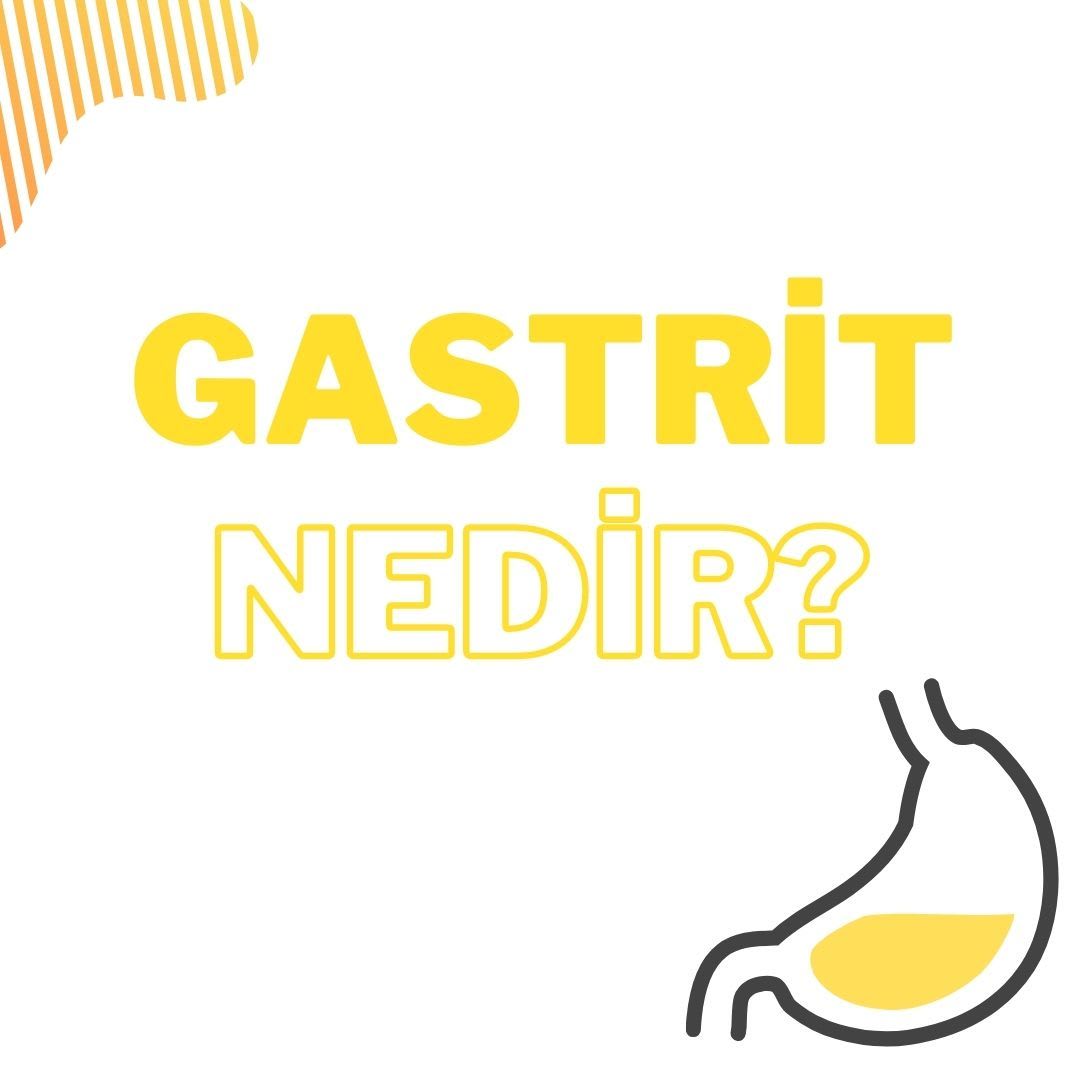What is Gastritis?
What is Gastrit? How Should Nutritional Treatment Be?
Expert Dietitian Özge Uçucu / 2021-09-26
Gastritis is an inflammation of the lining of the stomach lining. It occurs when too much stomach acid is produced or when the protective inner layer of the stomach wall is damaged. Excess stomach acid comes into direct contact with the membrane we call the gastric mucosa and damages the cells there.
So what are the causes of gastritis? Let's take a look at it together:
Infections caused by a bacterium called Helicobacter pylori are in the first place among the causes of gastritis.
· Smoking
Excessive alcohol consumption
Long-term use of drugs such as aspirin and ibuprofen, known as non-steroidal, anti-inflammatory drugs
Physical stress, i.e. catching a serious illness, major operations, traumas such as serious injury and burns
mental stress
Various bacteria, viruses or fungi infections
Food allergies
Radiation therapy
· Advanced age
Food poisoning
If we take a brief look at the symptoms of gastritis;
Signs and symptoms of gastritis primarily include a scraping, burning sensation or pain in the upper abdomen. These discomforts may be alleviated or increased by eating. At the same time, nausea, vomiting and a feeling of fullness in the abdomen after eating are among the symptoms of gastritis. However, gastritis may not always cause signs or symptoms.
Nearly all of us have suffered from indigestion and stomach irritation a few times. Most of the complaints of individuals with indigestion are short-lived and may be related to what they ate within a few days. The person should think about what he ate that day and get an idea about the foods that cause indigestion. At this stage, help from a dietitian can be sought.
If vomiting of blood is observed in addition to or independently of stomach upset, if there is blood in the stool, or if the stool appears black in color, a doctor should be consulted immediately to determine the cause of these conditions.
How should gastritis be treated?
Gastritis can usually be treated with dietary changes without the need for any medication. When these changes are not enough, various drugs are used in the treatment.
The first step in the treatment of gastritis is to avoid anything that irritates the stomach lining. Therefore, coffee, alcohol and cigarettes should be stopped.
Easily digestible foods should be consumed in small meals.
In cases of gastritis triggered by stress, relaxation methods such as meditation or a progressive muscle relaxation technique can be helpful.
Vitamin B12 deficiency is usually seen in gastritis complaints caused by the bacterium Helicobacter pylori. Therefore, injections of vitamin B12 can be used during treatment.
Diet is an essential part of gastritis treatment. In the gastritis diet, it is recommended to add foods that destroy Helicobacter pylori bacteria to the daily diet. For this purpose, probiotic yogurt, sauerkraut, tarhana can be consumed. Broccoli and garlic have a killing effect on Helicobacter pylori with its active ingredients and antibacterial properties. Additionally, research has found that ginger, apple cider vinegar, turmeric, thyme, cranberry juice, pineapple, green tea, carrot and beet juice both improve gastritis and relieve symptoms such as nausea, stomach pain, burning, bloating, and heartburn.
Some of the foods and drinks that trigger gastritis;
Chocolate
Coffee
Alcohol
Acidic foods like tomatoes
All kinds of processed food
Foods and beverages high in fat and sugar
fries
Food and drinks containing artificial sweeteners
Extremely spicy foods
- It can be listed as frozen foods.
Blogs
Success Stories
EDA G
WE ARE ALWAYS TOGETHER !
Since the day I started with you, I said "yes, no matter how hard you try, there is always Özge Uçucu by your side" and I still continue to say it. Frankly, I have never come across anyone who is this good at his job and in his field. As a client, I already love her recipes, there is nothing I don't like. I would like to thank Özge Uçucu for supporting me in every way and most importantly for always being there for me psychologically.
